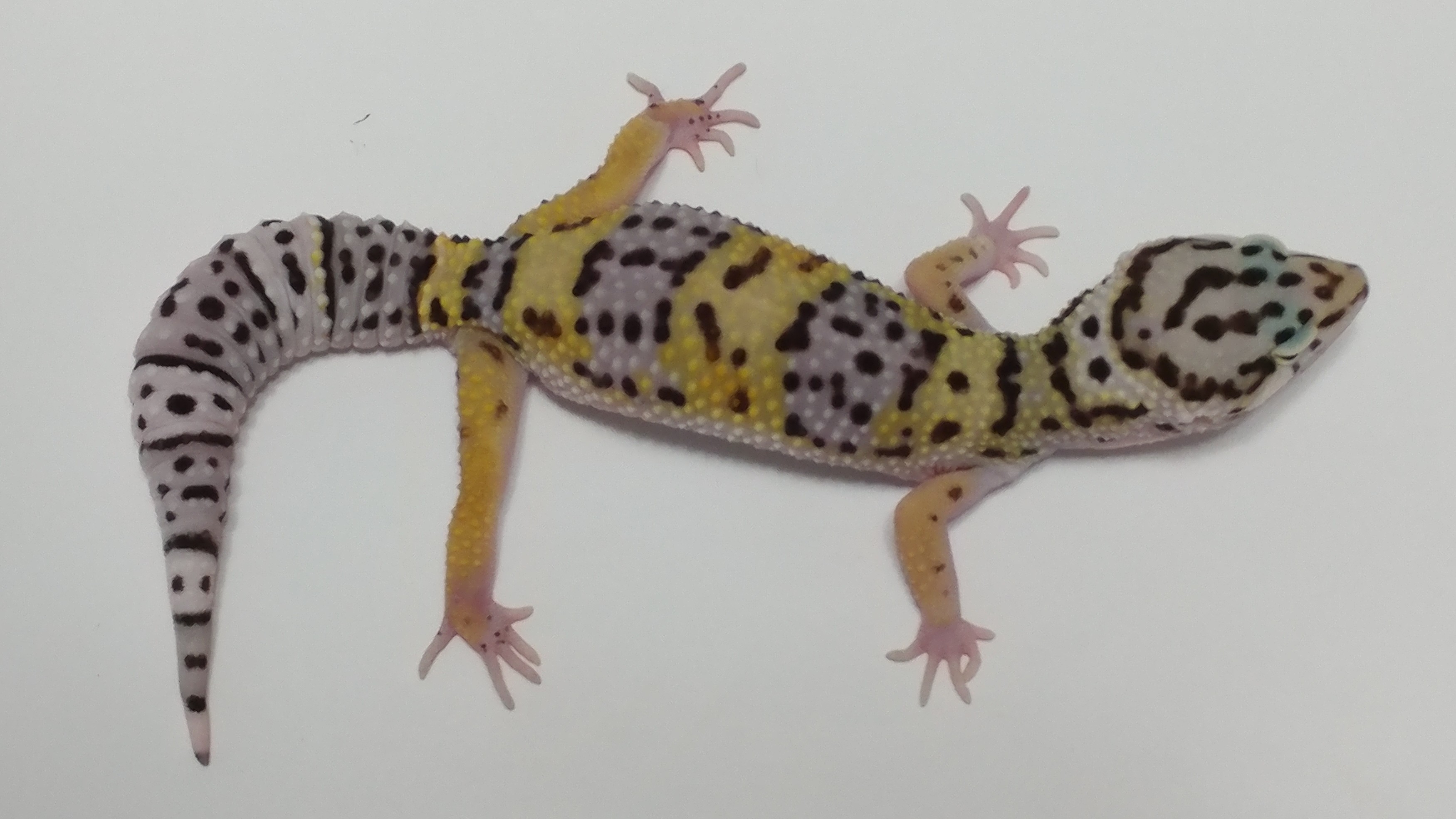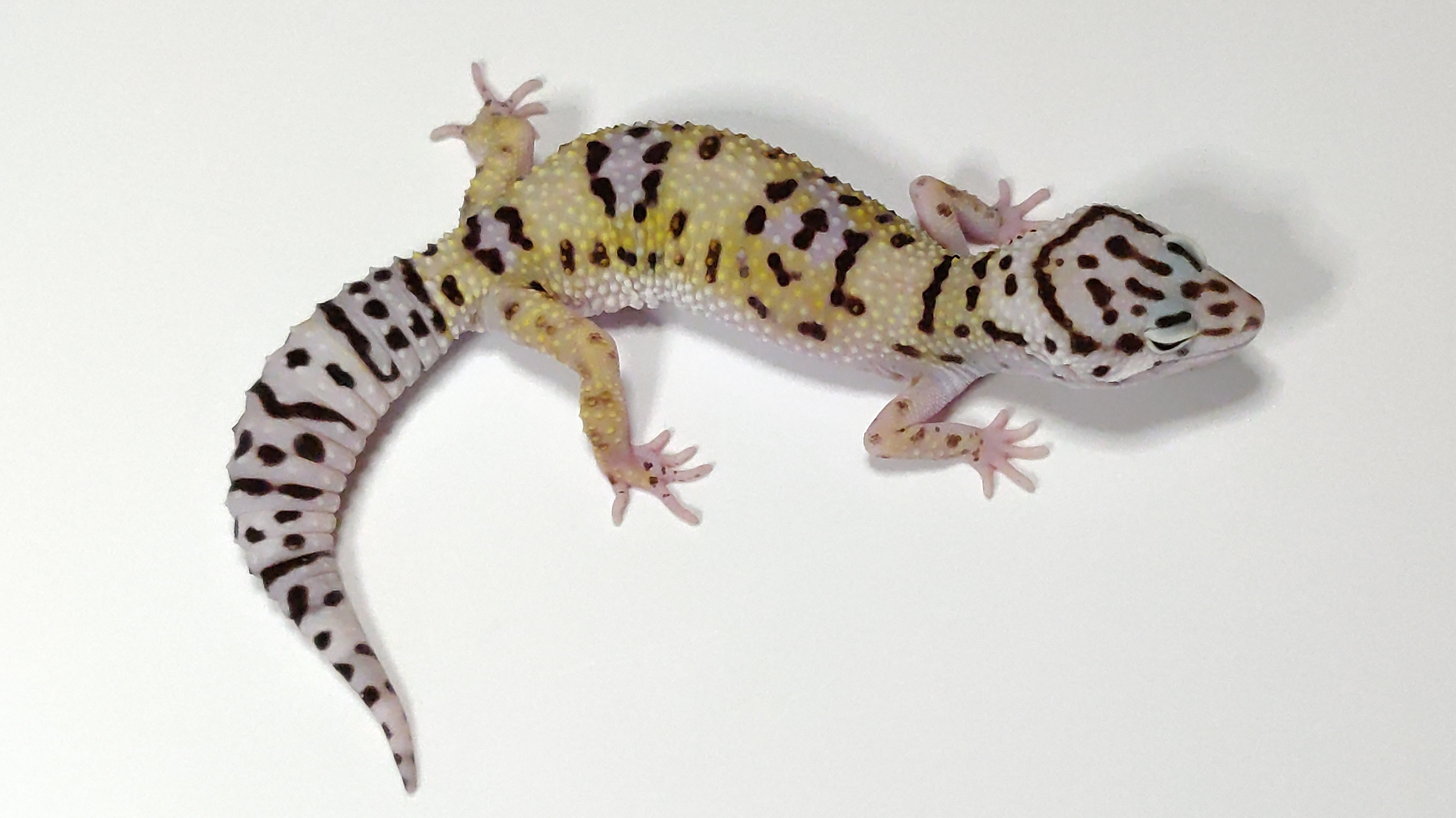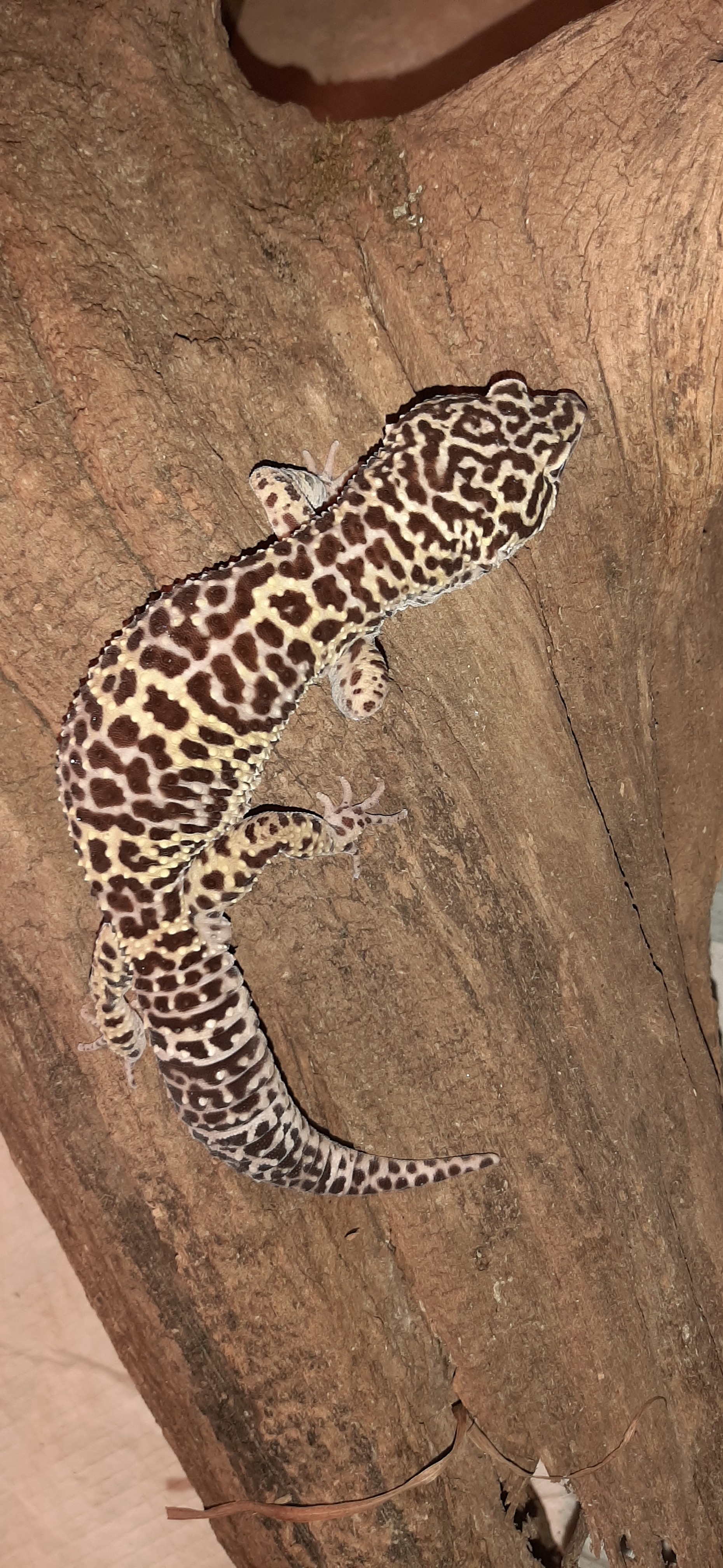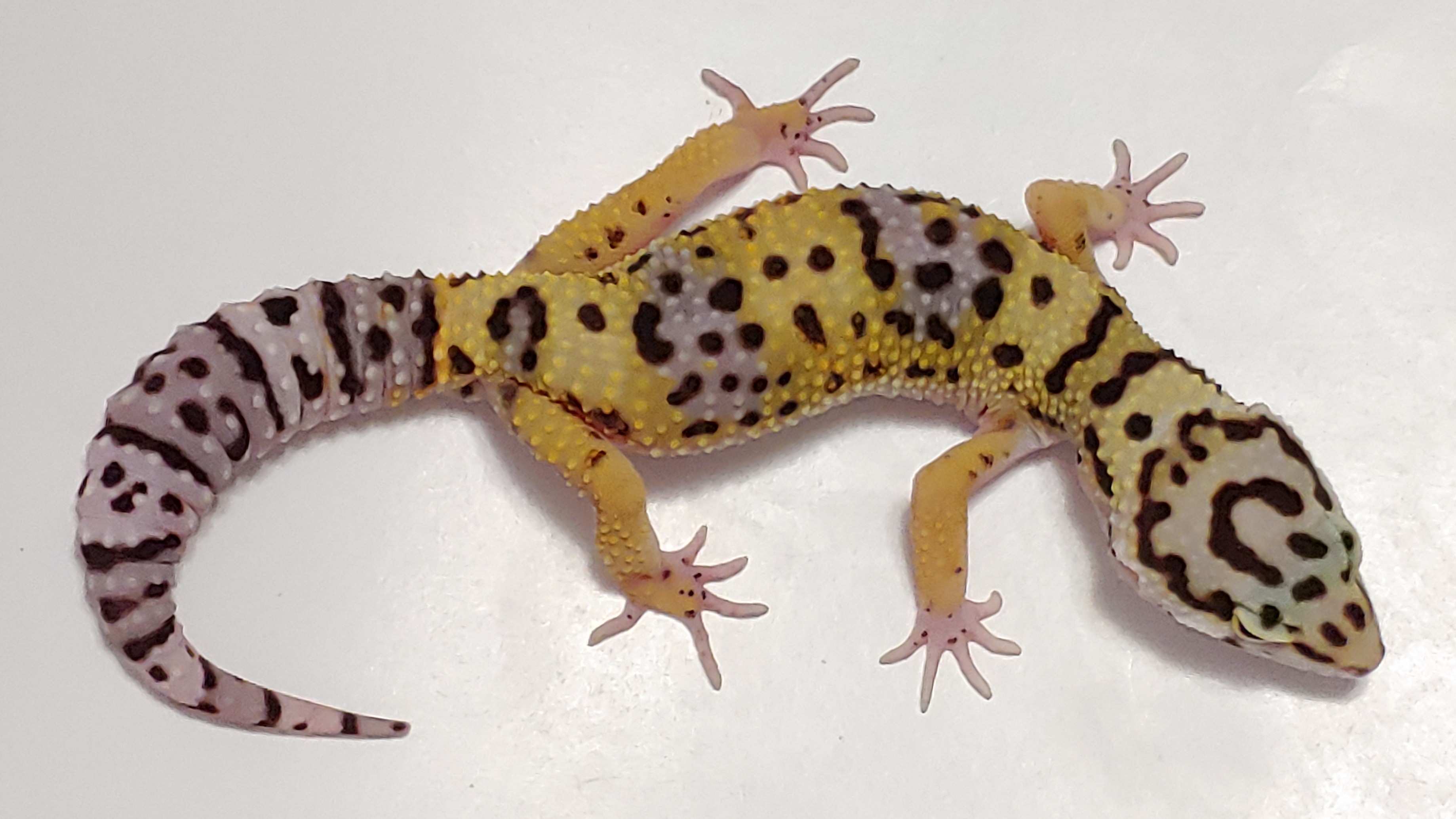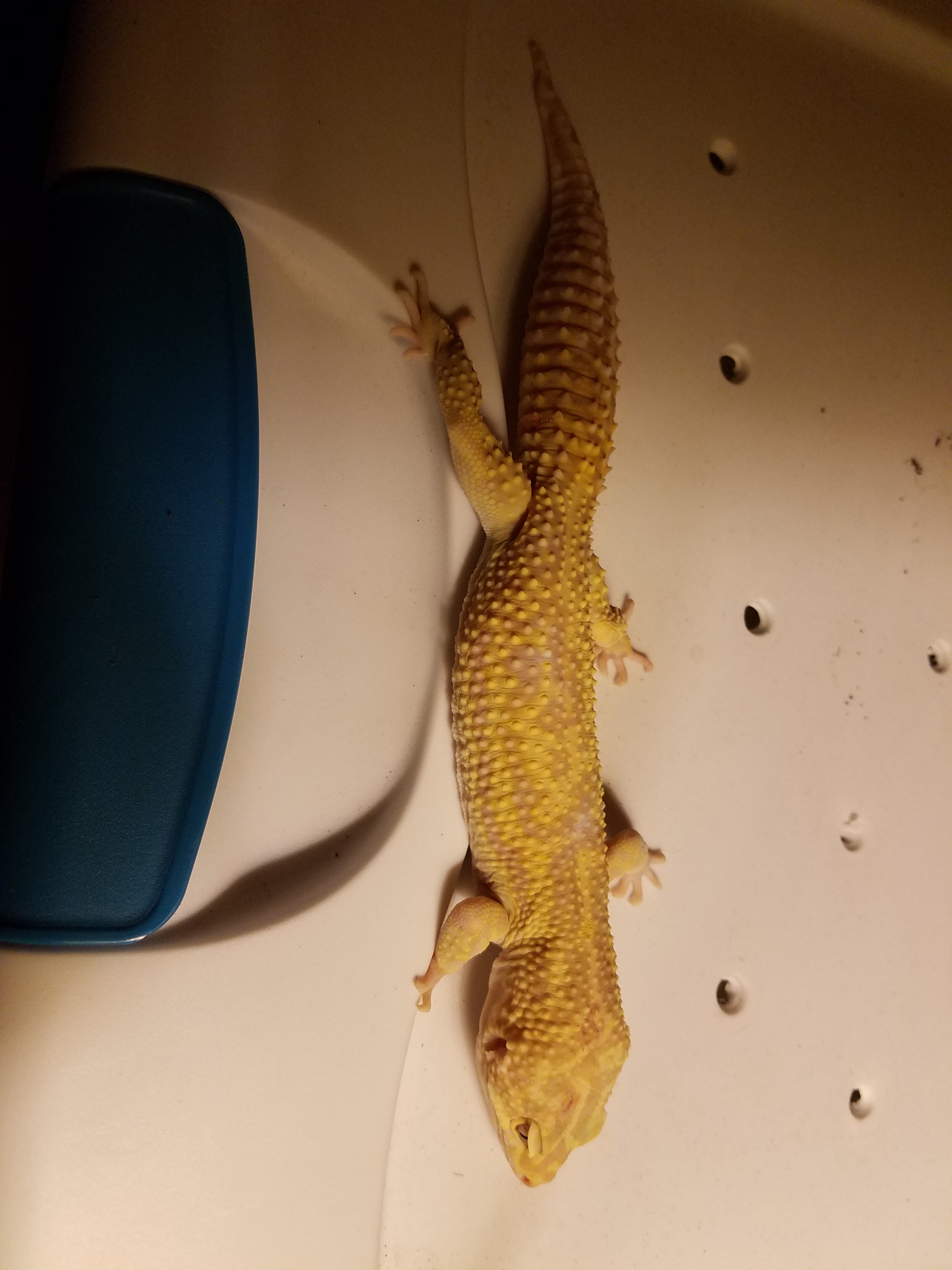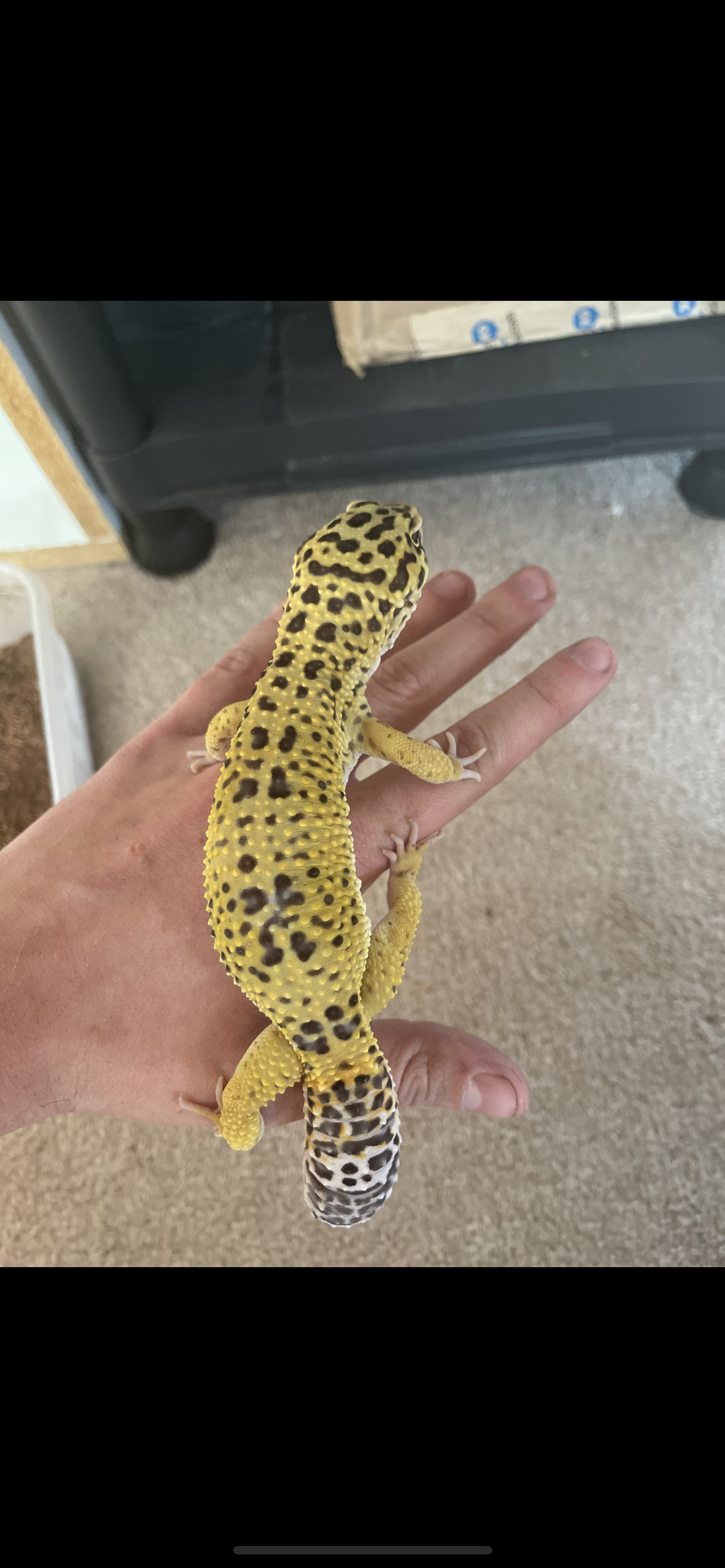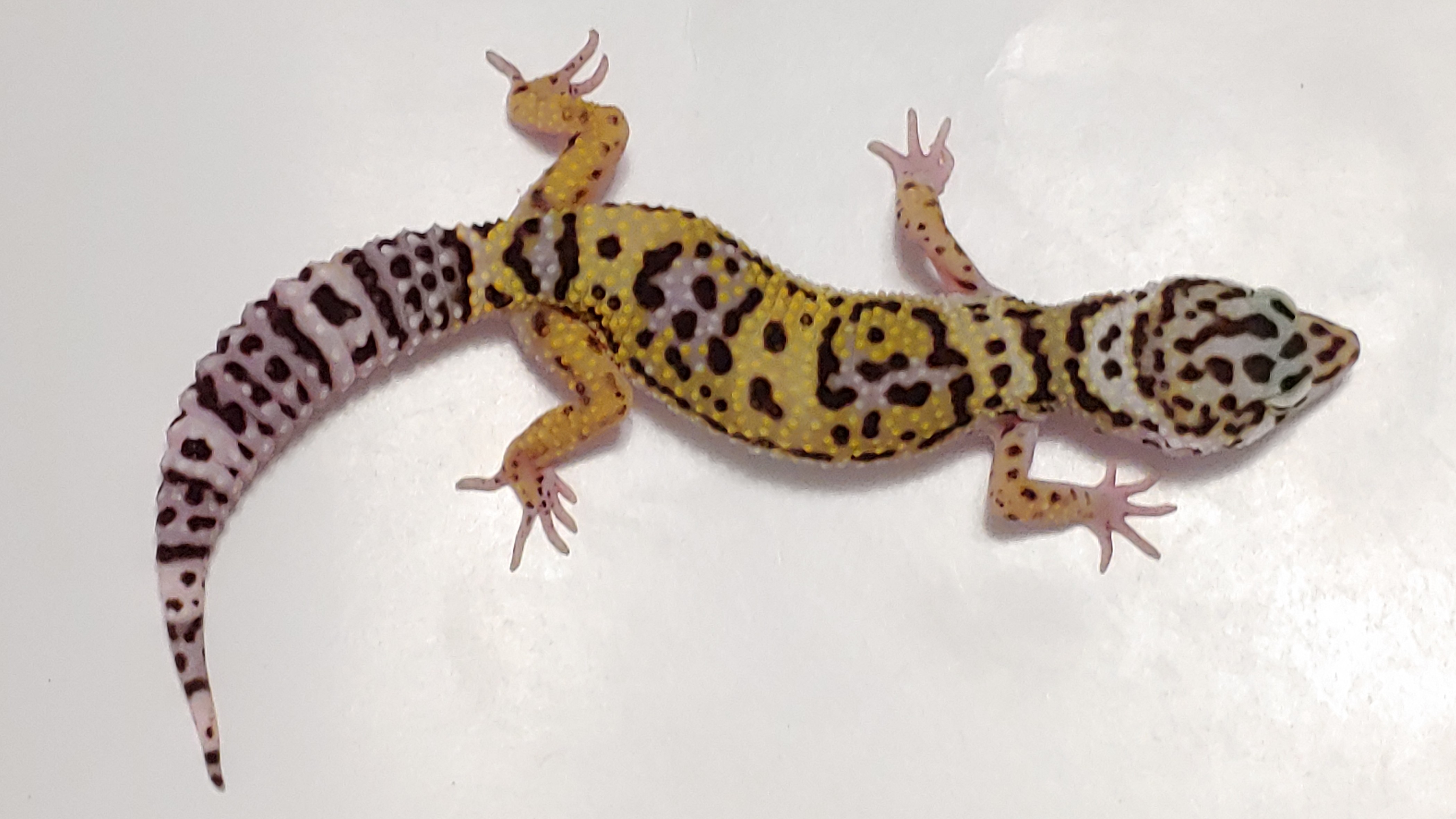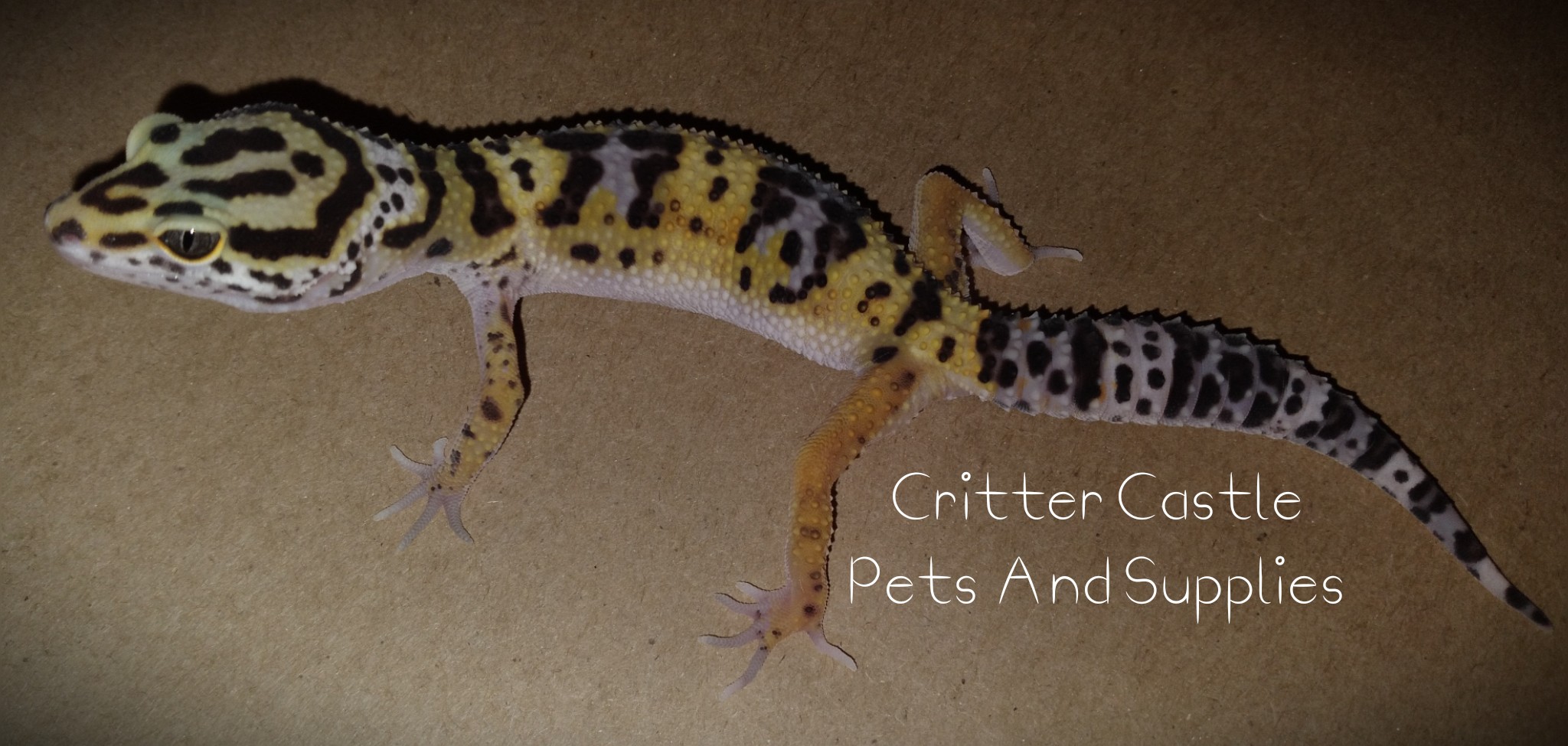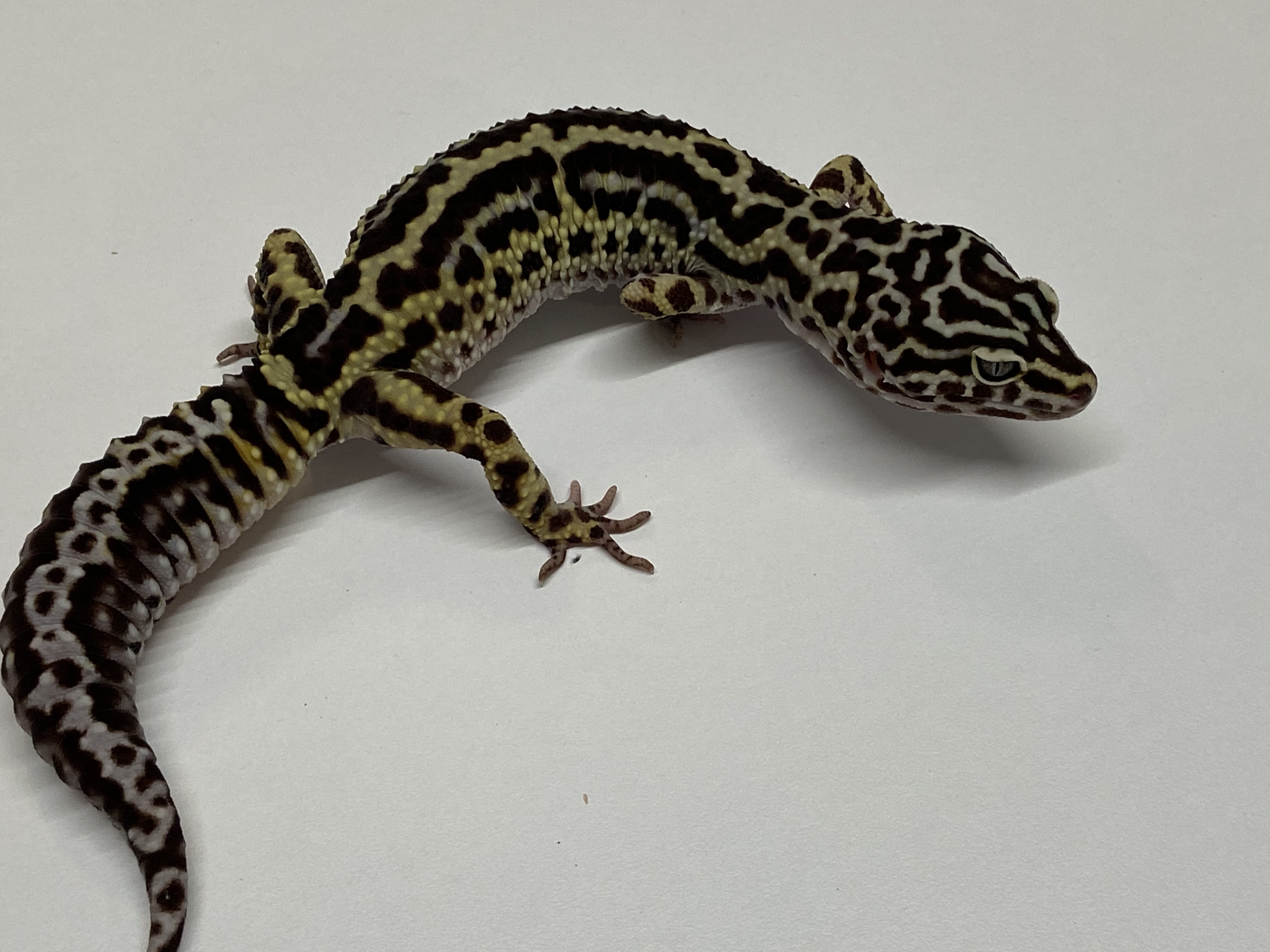Giant
Type: Incomplete Dominant
First Produced By: Ron Tremper
Issues: N/A
First Produced In: 2000
Availability: Common
Last Updated: 2023-03-06
Do you have any suggestions or corrections for this article?
Click here to contribute feedback
About
The Giant morph was developed by Ron Tremper in 2000. The Giant morph is thought to be an incomplete dominant trait. [1]
History
Ron Tremper’s original Giant, Moose, was a Super Giant. He reached a whopping 156 grams. When The Herpetoculture of Leopard Geckos came out, Moose was the largest Leopard Gecko ever. On October 9, 2007, Moose unexpectedly died at age 6 weighing 154 grams. [2]
In the summer of 1999, we hatched a huge baby from normal appearing parents- a purely spontaneous random event– in one of my 100+ egg incubation boxes. This normal looking hatchling measured a staggering 4.5” in total length, dwarfing the other neonates in the container, which typically measure 3” at hatching.
The big guy was set-up with a group of one-month-old geckos and within two weeks he had easily outgrown those cage mates. This got my attention, so he was moved to another group of geckos his size and the cage was marked, “giant?" When this lizard was 60 days old I could already easily tell he was a male- a desirable feature when starting out with only one animal of a possible new mutation. This leopard gecko grew to nearly 11 inches in total length by the age of 10 months and has not changed in size since.
As with any potential new mutation, one must test breed for several years to make sure that the morph breeds true before claims are made and it is released to the public. I figured that if I was going to make giant-sized geckos, then I might as well make giant albinos. I selected five of my best looking female albinos and went about the task of making hets. To my surprise and delight, the very first hatchling was an albino! This was a great bonus indeed, not only was the original giant a male, but it was an albino het, as well, having come from the hets in the early phases of my albino project.
I then bred these albino and normal daughters back to their giant father and when their young hatched there were a number of them with the characteristic long tails and elongated heads and bodies associated with the “Giant” trait. With experience, giants were easy to pick out. One of these albinos grew into the now famous, “Moose,” which hatched in May 2001. Through test breeding it has been proven that Moose is a pure homozygous “Super Giant”. In October 2004, he weighed 156 grams, making him the heaviest leopard gecko known to that date. His brother, who weighs less, is 11 3/8 long, making him the longest leopard I have ever measured.
Moose died unexpectedly in October 2007 at a weight of 154 grams and a length of 11 3/8 inches and at an age of 6 1/2 years… His cause of death is unknown, but perhaps, like giant breeds of dogs, the life expectancy of such super giants is less than normal. Moose’s genetics are still present here and are making their mark worldwide with some of his descendants reaching the 160-170 grams mark.
In my initial work on the giant project, I made all the first generation gene carriers to be females and because ‘Giant’ females tend not to be noticeably larger than older normal-sized leopards the idea that other genetics were at play was not evident. Subsequent input and breedings quickly established that this trait represented the first example of inc-dominance in leopard geckos.
Genetic outcomes for this trait:
Super Giant X Super Giant = 100% Super Giant
Super Giant X Giant = 50% Super Giant / 50% Giant
Super Giant X Normal = 100% Giant
Giant X Giant = 25% Super Giant, 50% Giant, 25% Normal
Giant X Normal = 50% Giant / 50% Normal [3]
Appearance
Body
There are three phases of the Giant morph, Normal, Giant, and Super Giant. The Normals do not express the trait at all. The Giants express the trait and are the heterozygous form. The Super Giants are the homozygous form of the morph and are very large. [4]
Controversy
There has been a long and heated debate on whether the gene** **is incomplete dominant, recessive, or line bred.
GeckoBoa: " ***I personally feel it is best described as a recessive, but may in fact be line bred. Very hard to find and prove true Super Giants. A lot that are labeled SG are just overfed normals and mixes. Serious test breeding and honest feeding regimes must be taken to ensure true SGs. Unfortunately, overfeeding for weight has taken it’s toll on many of these geckos. All the “record breakers” seem to have died within a couple of years. Best to not solely look at the scale and go for length instead. The scale can be used in a more accurate way if feeding is not overdone." [5]
Proven Lines
No known proven lines
Related Traits
No known related traits
Combos
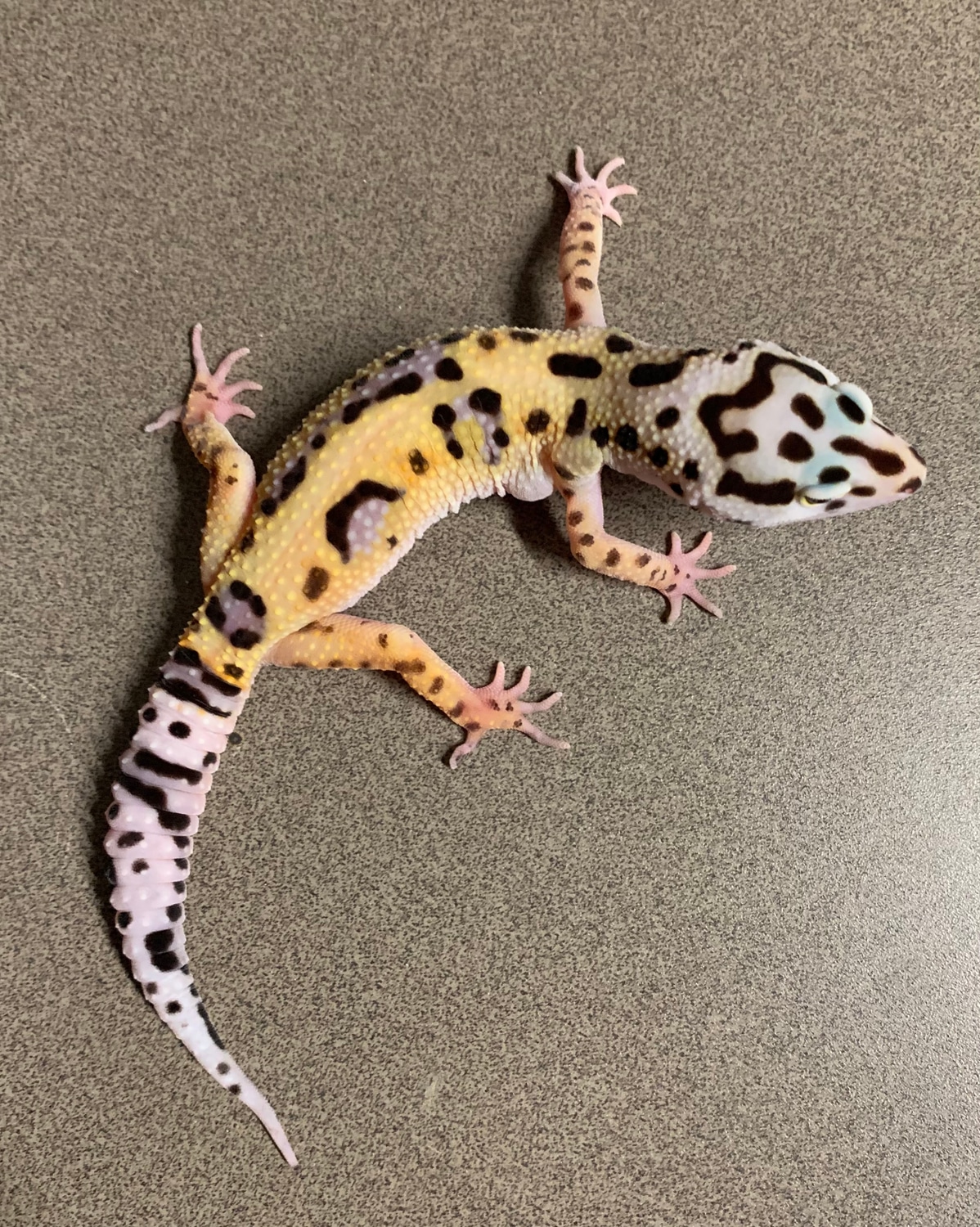
Giant Line Bold Tangerine Jungle Pos. W/Y Pos. Het. Eclipse Leopard Gecko by Fat Daddy’s Geckos
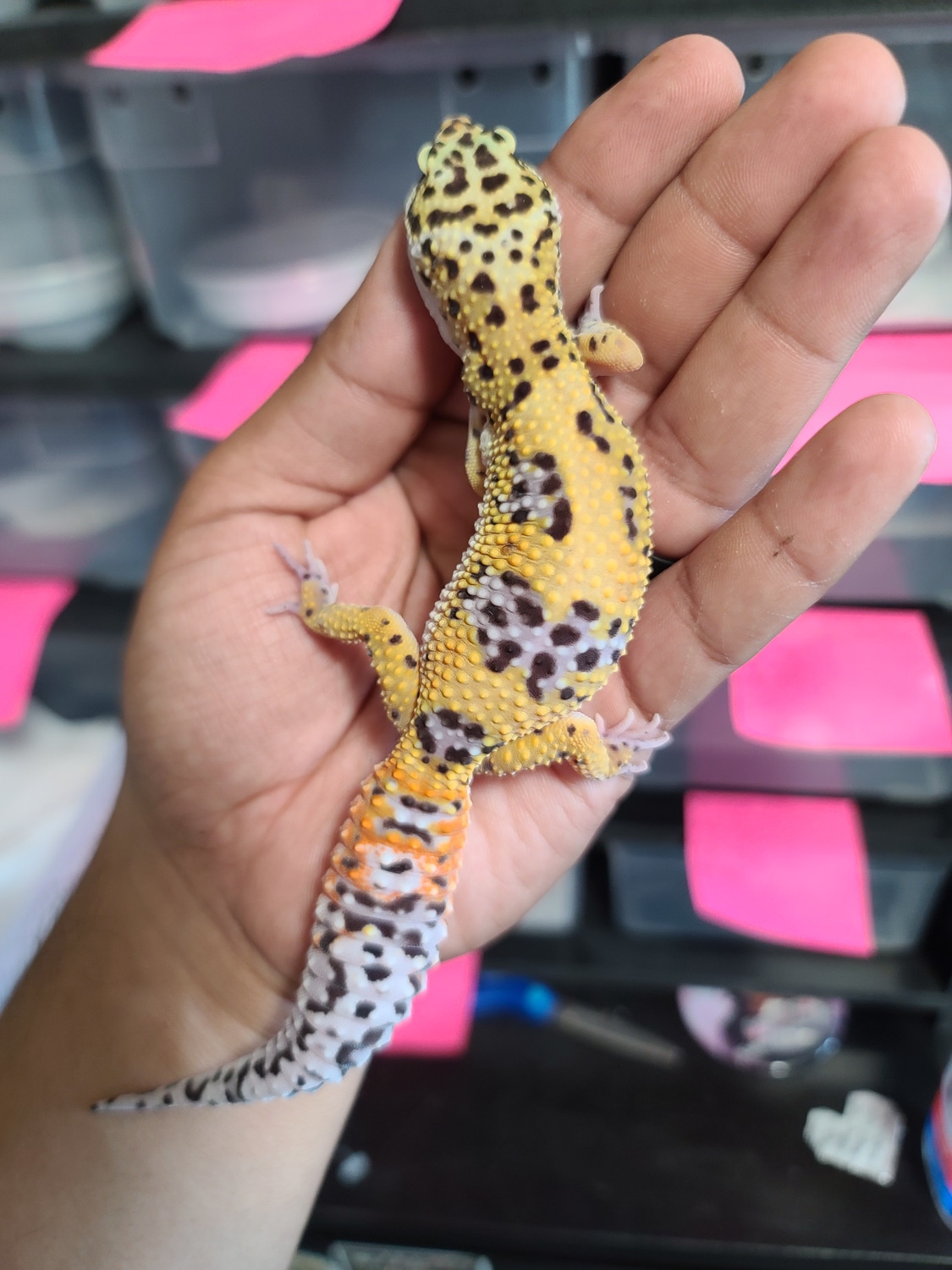
Giant Blood Emerine Bold Stripe Tangerine Leopard Gecko by Father & son's geckos
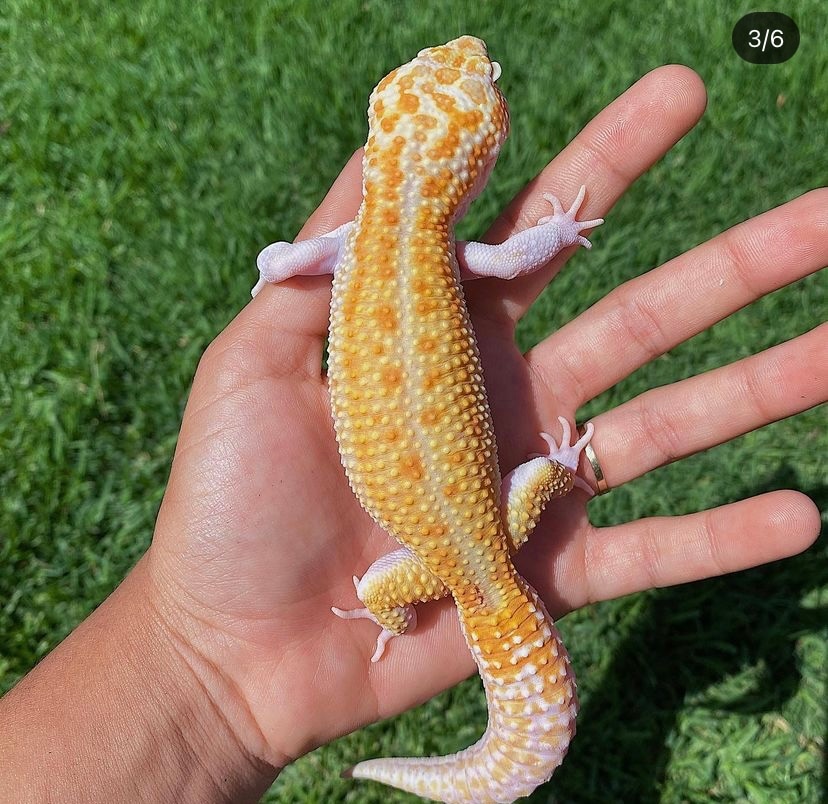
Redstripe Raptor G-project Pos Giant Leopard Gecko by Lunar_exotics
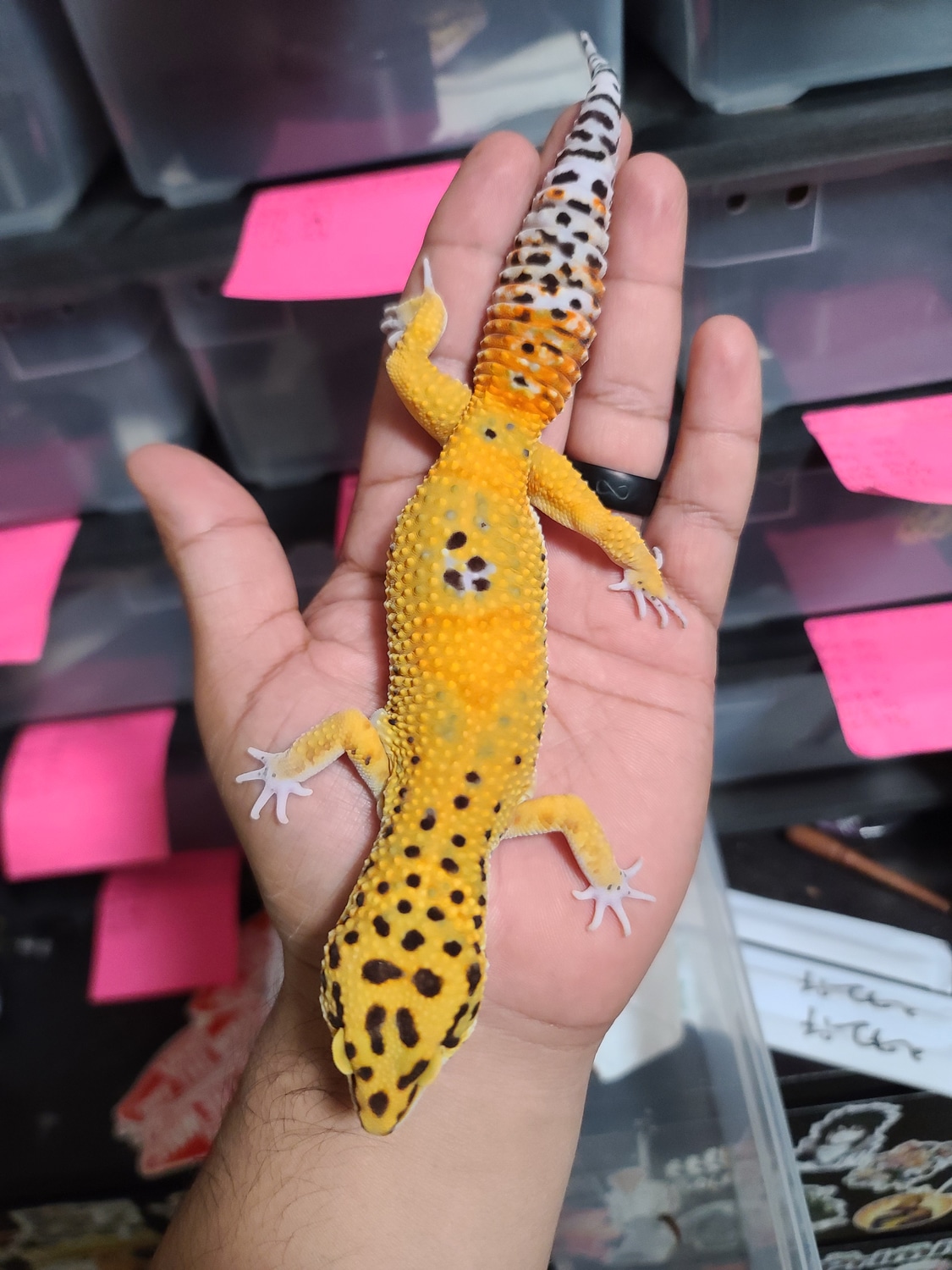
SG Blood Emerine Tangerine Leopard Gecko by Father & son's geckos
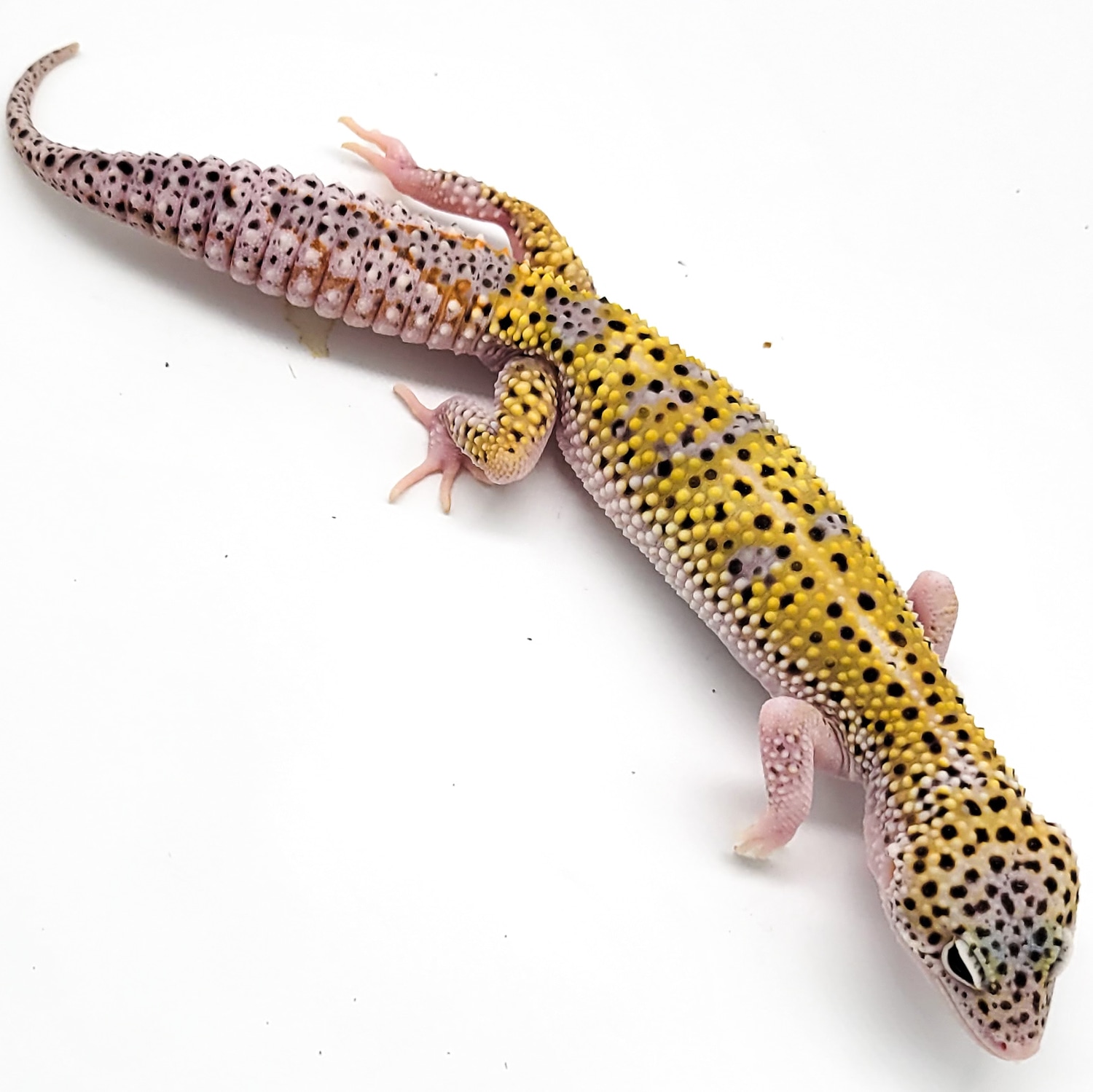
Super Giant Lavender Snow Het Bell Eclipse Leopard Gecko by Kalico Gecko
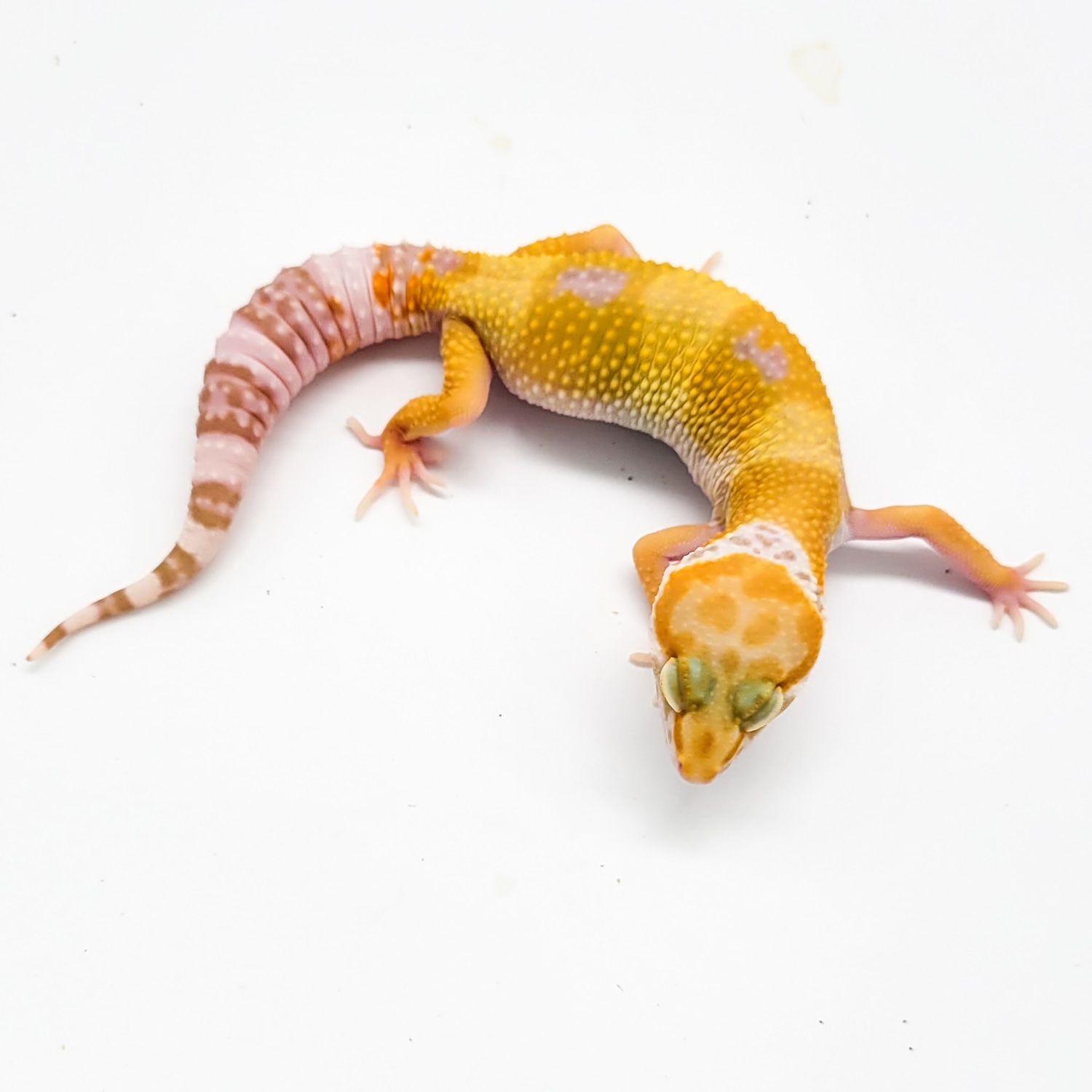
Super Giant Osiris Line Sunglow Tremper Het Eclipse Ts Leopard Gecko by Kalico Gecko
